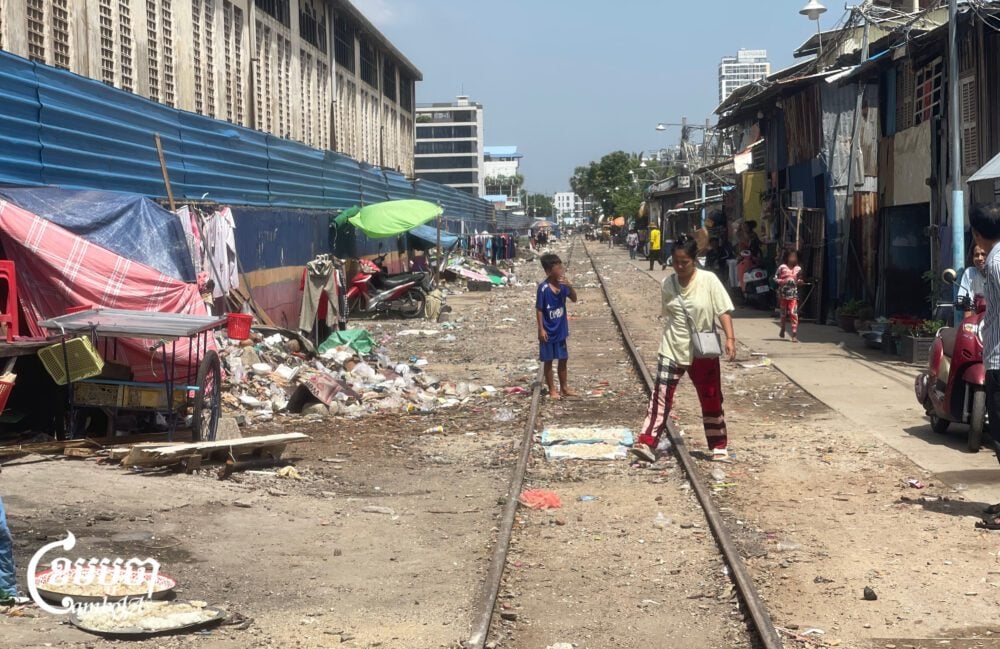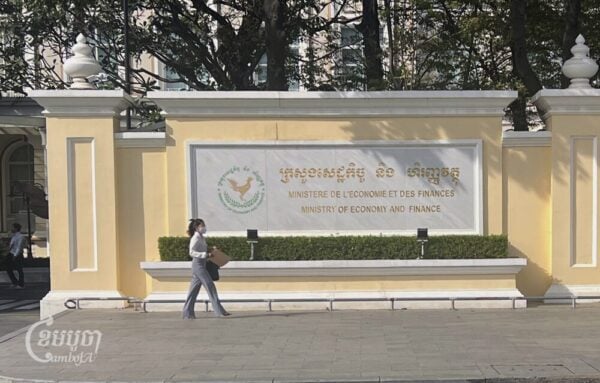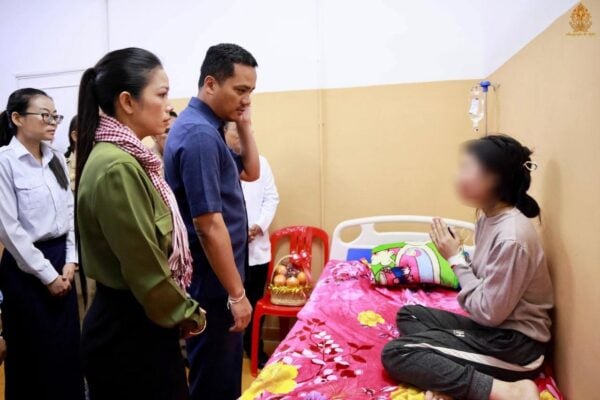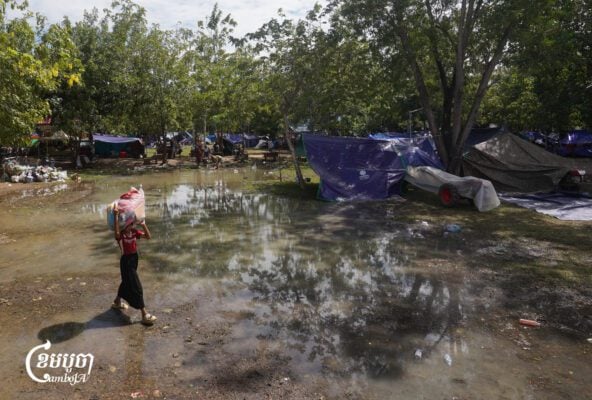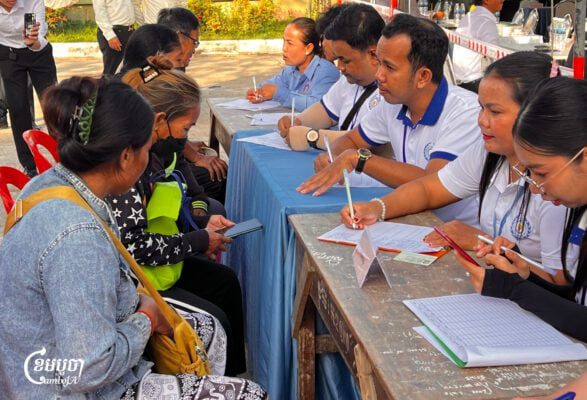Fearing eviction as development advances along one of Phnom Penh’s only two railways, more than 80 railside residents have petitioned city hall for land titles, hoping it will help them avoid being uprooted without adequate compensation or support.
Keo Nimol, who has lived along the southern rail line that runs past Por Prok Village, Pur Senchey district, for nearly 30 years, said it was the first time residents had formally requested land titles. Dozens went to city hall on the morning of June 3 to file the petition.
The resident representatives met city officials, who said they would follow up soon about the requests, according to one of the petitioners.
“I expect the city hall to consider us. We are not too demanding and we want to win over the authorities,” said Nimol. “What we want is a proper title and compensation for the affected residents. If we leave, we will leave with joy not with tears.”
Authorities have not confirmed further upgrades to Phnom Penh’s southern rail line into Por Prok Village, but residents say it is only a matter of time. With the buildout expectedly creeping closer, they are pushing for land titles to fend off eviction without fair compensation.
Planned upgrades along the railway corridor have already fueled fears of displacement in multiple communities.
In 2021 and 2022, more than 30 households in Toul Kork district were marked for eviction to make way for a new road and drainage system parallel to the tracks. Many said compensation was inadequate and resettlement options were too far from the city. Some petitioned city hall for land titles to block eviction or negotiate better terms.
The project stalled during the COVID-19 pandemic, but many residents remain in limbo.
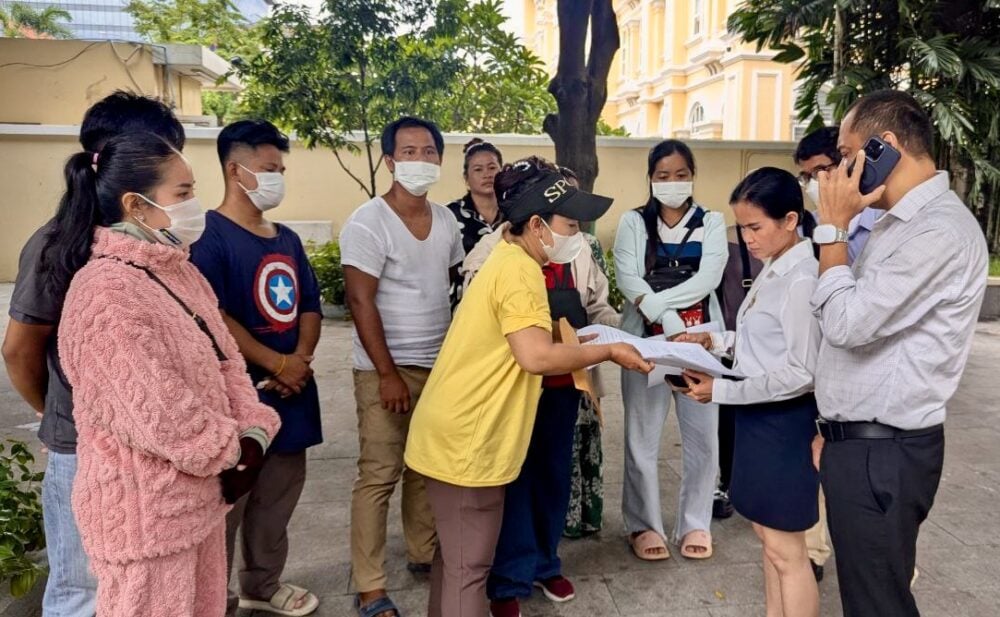
In neighboring Sen Sok district, Dei Thmey villager Phung Channea said authorities have surveyed her village repeatedly since 2011, likely for future railway projects, though details were never disclosed. She attended Tuesday’s petition and said a land title would help her secure a loan to support a potential move.
Rights groups say such cases are part of a broader trend. More than 40,000 people have been displaced from Phnom Penh since the 1980s due to development and infrastructure projects, often without fair compensation, according to land rights group Sahmakum Teang Tnaut (STT). The evictions have affected over 50 communities.
Many evictions have been accelerated by Cambodia’s complex land titling system, which poses particular challenges for poorer and indigenous communities.
Under the 2001 Land Law, people who occupied land peacefully and uncontested for at least five years before the law’s enactment can apply for formal titles. But decades of conflict, unclear records and bureaucratic hurdles have made securing legal ownership difficult for many.
Besides eviction fears, many railside residents have also pushed for basic services.
Villagers in Por Prok and nearby Dei Thmey only gained access to clean water in 2024 after petitioning the Phnom Penh Water Supply Authority.
Van Roeung, a commune chief in Pur Senchey district, said local authorities have no say in private land demarcations and only help facilitate development projects, commenting on his constituents’ petition efforts.
Phnom Penh city hall spokesperson Dor Samphors said that authority rests with the provincial governor.
Samphors confirmed the city had received the residents’ request but said a technical team and other stakeholders need time to survey the land’s history and boundaries. “For now, we have no specific answer,” she said, without offering a timeline.

